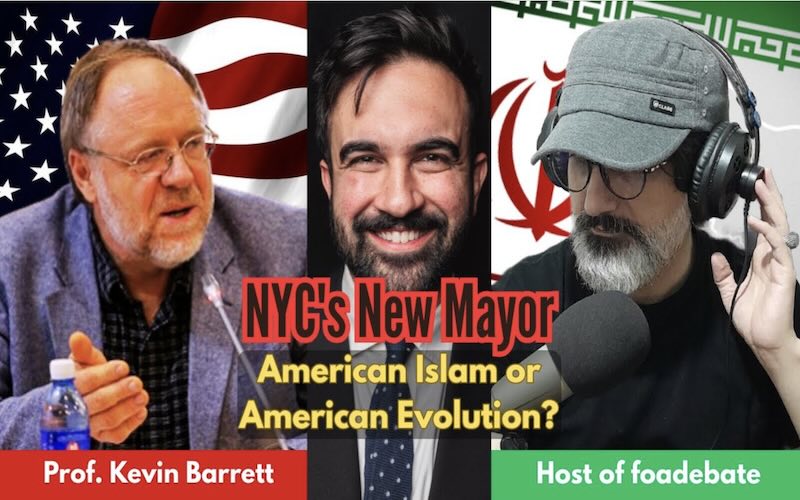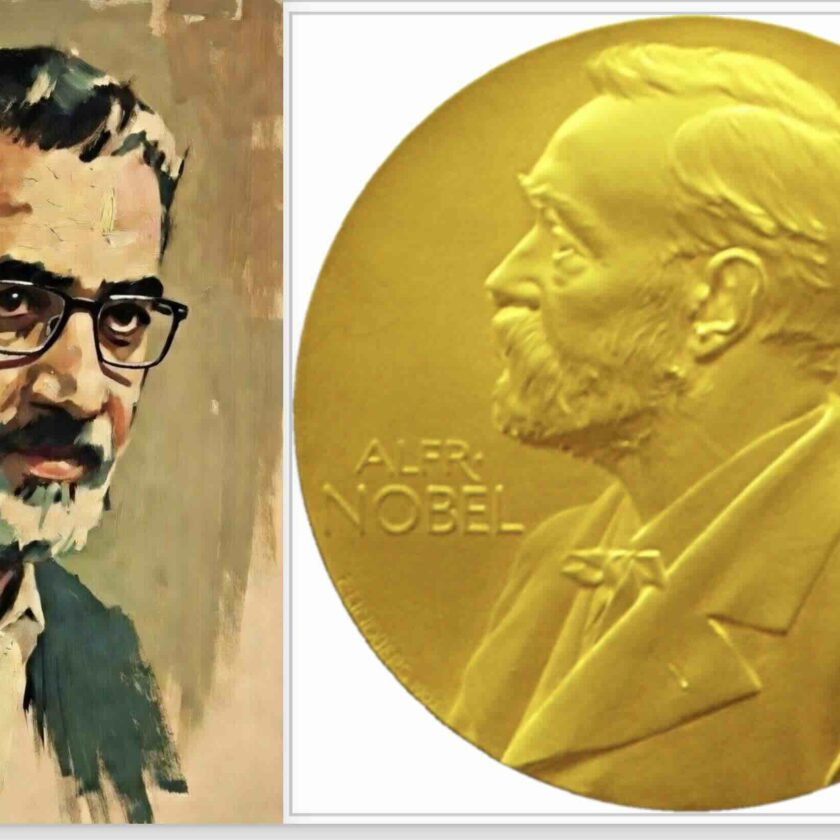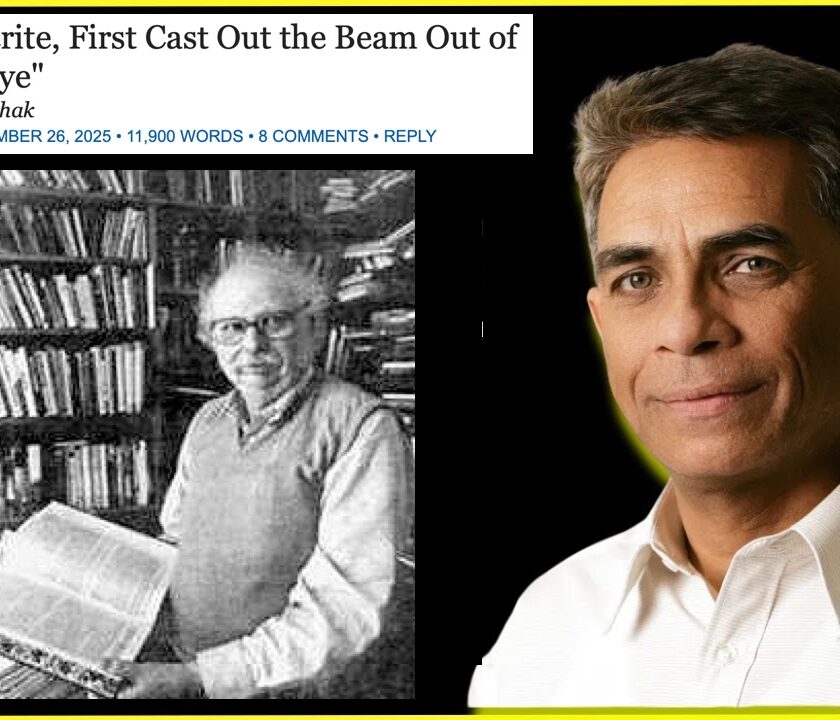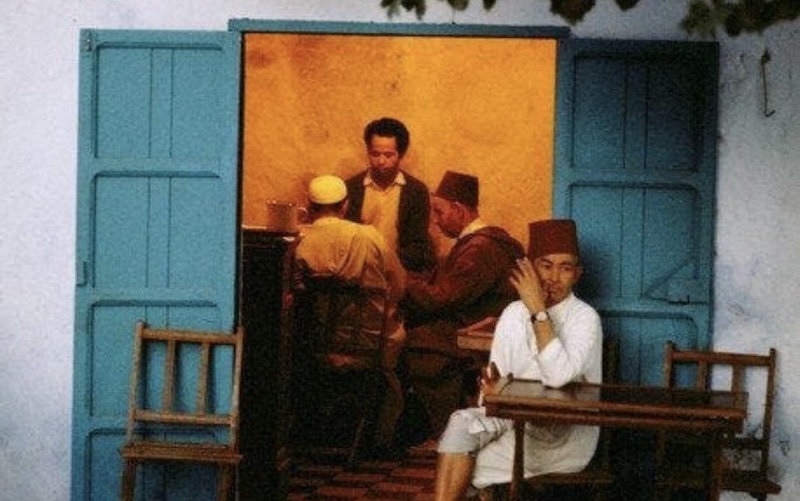In a recent interview I conducted with Professor Kevin Barrett, a well-known political analyst and Islamologist, we examined this very question in depth. Barrett pointed to Momdani’s election as mayor of New York—despite the intense climate of Islamophobia and influential Zionist lobbying—and described the event as both “unexpected” and “performative.” It was unexpected because a Muslim figure, openly defending Palestinian rights, managed to win in one of the most powerful Western cities. Yet it was performative in the sense that the American governance system consistently attempts to channel dissent into controlled, non-radical forms.
According to Barrett, although Momdani holds humane and justice-oriented positions, he is compelled to operate within a discursive framework that is palatable to the mainstream liberal-secular West—rather than speaking in terms that resonate with the masses of Muslims who seek fundamental change. Thus, while on the surface this may appear to be a defeat for Islamophobia, in practice, this election could serve as a way for the system to cleanse itself of accusations of racism and anti-Muslim bias.
FoaDebate: In the name of God, the compassionate, and the merciful. Hello, everybody. Hope you are doing great. You’re watching FoaDebate. Today, I’m honored to host Professor Kevin Barrett, an Arabist-Islamologist scholar, and one of America’s best known critics (of the War on Terror) and political analysts. We are here to discuss the various dimensions of electing a Muslim and anti-Zionist figure as the mayor of New York City. Thank you for joining us, Kevin, and good to see you.
Kevin Barrett: Thanks. It’s great to be with you.
As you know, Mandani’s rise from a relatively unknown figure in the polls to the position of New York City mayor has been described by some media outlets and analysts as a major political upset. How do you assess this sudden rise?
Yes, it absolutely was a major upset. And I think maybe the most interesting thing about it was that it really began when Mamdani was the only anti-Zionist candidate among a number of candidates for mayor of New York City. He was in the middle of a debate, and the question was, “where is the first place you will go if you’re elected mayor?” Every other candidate fell all over themselves competing with each other to say that they would rush off to the state of Israel—that is occupied Palestine, of course—and basically kiss the prime minister’s whatever, and put on the beanie at the wall and essentially pledge loyalty to the state of Israel.
It was actually so extreme that when I first saw this, I thought it was some kind of parody. But no, it was the actual debate. And Mamdani was the only candidate who said the opposite. He said, “I’m not going anywhere. If I’m elected, I’ll be elected to represent the people of New York City.” And then he was attacked. Everybody jumped on him and attacked him as some sort of anti-Semite who wasn’t loyal to Israel. And he defended himself very ably, very competently, in a way that won him a lot of admirers in the mainstream—by saying that he didn’t hate Jewish people. He would be happy to meet with New York City Jews, who of course are the most influential segment of that city, and listen to their concerns and help them achieve their goals and so on, but that he wasn’t going to rush off to Israel.
And then when attacked later as an anti-Zionist, he said that he does recognize that “Israel” has a right to exist, but only as a non-ethnostate: not a state of and for the Jewish people, but a state of and for all of its rightful citizens, obviously including Palestinians who’ve been ethnically cleansed.
That’s a very strong position for a successful American politician to take. And it’s kind of astounding that he won the office of mayor of the most Jewish city in the world outside of occupied Palestine.
As you mentioned, Mamdani is known as a staunch critic of the Zionist regime’s policies in Gaza. He has explicitly described the Israeli regime’s atrocities in Gaza as genocide. However, he has also condemned the October 7th attacks by the Palestinian resistance, and stated that he does not actually support Hamas. Nevertheless, his explicit anti-Israeli positions have led Trump and the Republicans to label him a Hamas sympathizer or a radical socialist. They have even threatened to cut federal funding to New York City over this matter. How would you analyze these seemingly contradictory positions and policies?
Well, first, I think we have to face the fact that to run for mayor of New York, or really any American city, with possible exception of a couple of cities in Michigan, you have to basically condemn Hamas. In the Western world today, there is a tremendous wall of propaganda against the resistance axis, including Hamas. The biggest single target of this propaganda is indeed Hamas. And this propaganda is so extreme, powerful, and widely accepted, thanks to the Zionist control of mainstream media, that the population of the West has—with the exception of more and more young people—but the majority of the population, and certainly most of the people in power, have been conditioned to think of Hamas as being essentially the same as Daesh or Al-Qaeda. It’s listed as a terrorist group. So that puts it off limits to openly support. And so it shouldn’t surprise us that Mamdani refuses to support Hamas, opposes Hamas, and has not pushed back harder against the false and ridiculous Western official media distortion of the heroic al-Aqsa Storm uprising on October 7th, 2023.
That said, Mamdani’s view of the future of Palestine aligns him with the Palestinian resistance. That is, he wants a liberated Palestine in which all Palestinians will be first class citizens. And he wants Jews to be able to remain there as equal citizens as well.
And I think that that vision, as improbable and idealistic as it may sound, would not be rejected in principle by the Islamic resistance. So it’s really, I think, a way of conveying the same message. The Islamic resistance knows that the only language that the genocidal Zionist entity understands is the language of violence, the language of military action. But people are not allowed to understand that in the West, certainly not if they’re running for mayor of New York.
So Mamdani phrases his understanding of the issue in a way that will get a friendlier reception in the United States. And the Zionists are, of course, horrified because they understand what I just said. They understand that Mamdani’s desire for justice in Palestine is really no different from the desire of the Palestinian resistance. So they get very, very angry because Mamdani phrases his thoughts very carefully and does so with sincerity. I think he actually believes in his idealistic vision.
So he’s very effective politically, especially among the younger people who are becoming more and more aware of what’s really going on in Palestine.
In your view, is the election of someone with a specific religious and ethnic background as mayor of a key Western city purely a domestic American affair, or should we analyze it within a larger global framework?
That’s an interesting question, because Mamdani’s relationship to the religion of Islam is not unlike the relationship of, let’s say, the Kennedy family to the religion of Catholicism, or of most U.S. presidents to Protestantism. He clearly is not a scholar of religion. I’m sure that he is inspired by religious ideals in his heart. And indeed, his apparent care for justice probably grows out of his Islamic religious background, given that Islam does, of course, carry a message of justice. But I think that it’s more a matter of identity politics. In the United States political system when people who are nominally members of this or that religion run for office (it’s about identity politics not religion) because there is a kind of a widespread secular culture in the United States, particularly on the progressive left.
And so someone like Mamdani, despite the fact that his love of justice grows out of his religious background, has an overall view of the world that is closer to that of secular progressives than it is to traditional Muslims. And for that reason, I think what’s significant here is not so much that we have a genuine, practicing, believing Muslim who’s really well-informed about Islam and so on running New York. No, I don’t think so. It’s more that what we’ve done here is we’ve overcome the prejudice against Muslims, the hatred, the Islamophobia that has been broadcast around the United States incessantly since the September 11th, 2001 public relations stunt by the Israelis and their neoconservative friends, when they blew up the World Trade Center and invented a false story attributing it to Muslim hijackers under the control of Bin Laden. Since then, the Zionist controlled media has been working overtime to slander Islam. And many Americans have been afflicted. In fact, I think most Americans have been afflicted by this Islamophobia to one degree or another.
So regardless of what we think about how deeply pious he is, how genuinely representative he is of someone of genuinely Islamic faith, I think his election is significant because it’s a huge defeat for the Islamophobia propaganda push.
If we take a closer look at Mr. Mamdani’s intellectual history, political background and his stated positions, what key insights does that reveal? Does this profile suggest he is the product of a carefully engineered process?
That’s another interesting question. I have been labeled a conspiracy theorist because there are certain issues in the United States that you’re not allowed to investigate honestly, because once you do, you understand that the American public has been sold a false story about these events. The Kennedy assassinations and September 11th are the two most obvious ones.
In the community of so-called conspiracy theorists, there are people who imagine that everything is somehow being orchestrated by nefarious forces. And in this case, such people might look at Mamdani and imagine that this is part of some kind of pushback against the Trump regime by liberal oligarchs who are going to be trying to recapture power in the near future. And that maybe he’s useful. The election of Mamdani has energized the Democrats. And it will help them do better in next year’s elections and then in the presidential elections in 2028.
And so one could come up with a theory that it’s all orchestrated. But when I look at Mamdani, especially the way his campaign got off the ground with that debate in which he was the only candidate who refused to pledge to go to Israel, I don’t think that was scripted. I think those other candidates are really so terrorized by and owned by the hardcore Zionist oligarchs around New York City that they were just behaving naturally. And Mamdani—I don’t think somebody dreamed this up as a stunt for him to speak that way. I think that he sincerely expressed his actual views. And I think he’s very gifted at doing that. So I think what we have here is just that a very gifted young politician hit pay dirt by being in the right place at the right time.
From my perspective, our adversaries have learned a critical lesson. Framing the conflict as Zionist Jewish civilization versus Islamic civilization would unite the Islamic world into an insurmountable force leading to their own defeat. Therefore, they must change the game. I believe they are shifting the battlefield and altering the rules of engagement. They are turning an external war into an internal one, essentially pitting the Islam against itself. Do you agree with this analysis and to what extent do you see Mamdani’s election as a part of this strategy?
That’s an interesting point. And I think there’s some truth to that, undoubtedly. For instance, Mamdani, in order to win as mayor of New York, has to do what these other nominally Muslim candidates have done in other places in the United States. Rashida Tlaib and others have had to basically align themselves with the progressive left. And the progressive left in the United States now is very pro-LGBTQ, it’s very opposed to (some) Islamic values. But it’s also the last bastion of so-called tolerance and anti-Islamophobia.
So I think that there has been a sort of a deliberate effort in the United States to make sure that Muslims have nowhere to go but that corner of the American political system. Because it’s really the least threatening, at least to the extent that there’s a genuine civilizational threat to this very decadent Western civilization coming from Islam.
Islam is definitely the best preserved of the great faith traditions. We still have well over a billion people are fasting every Ramadan. Probably the same number would agree that we should be praying five times a day. They don’t necessarily all do it, but they all agree that they should be doing it.
And they are respecting the message of the Holy Quran, and essentially not falling for the (false) values of secular, decadent Western secular civilization. And so people like Mamdani, while they may be a threat to extreme Zionism, are certainly not threats to the hegemony of liberal secular Western civilization.
I noticed when I was representing the 9/11 truth movement in the United States, starting in 2004—and I got a lot of mainstream media coverage starting in 2006—that nobody wanted to hear what Muslims really think, about what the Muslim majority thinks. They reject it, they cover their ears, they just don’t wanna hear it.
So when people like Mamdani basically say the same things that Bernie Sanders says, maybe a little better than Bernie on a few issues, that reassures the progressives and the liberals who still are true believers in the ideals of this Western secular materialist progressivist civilization that’s created a false religion. It grew up 150 years ago when traditional religion fell by the wayside. The Western elite adopted the notion that things will always get better and better, “because we’re materialists now. Scientists study the material world. And they will make things better and better by improving technology. And therefore, we should allow science to be the arbiter of truth. And we should basically drop all of the traditional religious values.”
But that new religion of scientific materialism and progressivism and secularism has not succeeded. The postmodernist movement that grew up 40 years ago showed us that. It showed that where we have really arrived at in Western civilization is nihilism.
And that left the door open for Islam, which has a well-preserved message, a very coherent message, that’s so shockingly coherent that people like me convert to Islam. And because we see that it actually lives up to its self-description as the last, best preserved and clearest divine message, capable of being the foundation of a better civilization.
And so that challenge to contemporary Western civilization from Islamic civilization— the single biggest historical expression of which was the 1979 Islamic revolution in Iran—that challenge is something that is people like Mamdani and other American, nominally Muslim politicians are actually probably on the wrong side of. They’re closer to being true believers in liberal secular materialist progressivist humanism than they are to being well-informed practitioners of Islam.
Fantastic. Another question: What’s your take on the seemingly intense rivalry between figures like Trump and Mamdani? Is it a form of political theater designed to deceive the public? And if so, what is the ultimate goal of this performance?
You can analyze American politics as these series of performances. And sometimes they’re very coarse, crude performances indeed. Trump’s performances have been compared to the sport, the so-called sport, of professional wrestling. And I don’t know if you’ve watched any professional wrestling American style, but it’s a kind of humorous hoax in which two big muscle-bound guys pretend to fight. They pick each other up and slam each other on the ground. They have all of these stunts where they pretend to be fighting dirty and trying to kill the other guy, but it’s all scripted. And Trump and some of his opponents sometimes look that way.
Trump is notorious for having actually participated in some professional wrestling stunts when he was a showman. And indeed, this is a bit off track, but when Trump was supposedly shot on July 13th 2024 in Butler, Pennsylvania, that alleged assassination attempt looked very much like a professional wrestling stunt. Trump was supposedly shot in the ear by a bullet. But there’s no evidence whatsoever that his ear suffered any damage. The shot rang out, he hit the floor. He was only down for a few seconds during which he popped a little blood capsule on his ear or someone else did it for him. So he had some blood on his ear and his face. He stood up, having painted war paint onto his face, and exposed his entire torso to more bullets—had there really been any bullets—and shook his fist in front of the American flag in what was obviously a staged photo op.
This is exactly the kind of stunt that professional wrestling people have been perfecting over the years. And then interestingly, just a few days after that, the keynote speaker at the Republican National Convention that nominated Trump for president was Hulk Hogan, a famous professional wrestler, who delivered a ridiculous speech almost making fun of the whole thing.
So yes, American politics does have a very, very strong element of this kind of deceptive showmanship, which features false antagonisms, people pretending to absolutely hate each other, but they’re actually all part of the same club. Whether that’s true with Mamdani and Trump, I don’t know.
To be elected in New York City, Mamdani did have to make himself non-threatening to liberal Jewish oligarchs. But they’re still Jewish oligarchs. And those people compete with some of the other oligarchs, including the non-Jewish ones and the right-wing oligarchs. But at the end of the day, they’re all working together to preserve the oligarchy.
So I don’t think Mamdani is a threat to the oligarchy.* And as to whether it’s all scripted and it’s a big show, I think it tends towards that, but I don’t think it’s entirely scripted. I sort of participated in the show a little bit in 2006 when Republican politicians attacked me as “the professor of conspiracy theories” for what I was saying about September 11th. So I got a lot of mainstream attention. I went on mainstream media and fought with people. I fought with Sean Hannity and I fought with Bill O’Reilly and other famous radio hosts and TV hosts. And was a spectacle, but it wasn’t…well, my part wasn’t scripted. Maybe they had their orders about their talking points to attack me with.
But I just sort of fell into that spectacle. And I think that Mamdani may have sort of fallen into his role as well. I don’t think they put him in the casting couch and cast him. So it’s sort of like a reality TV show in a way. The people with the cameras and the microphones and the money decide what gets broadcast, what gets boosted on the Internet, on social media, and what doesn’t get boosted, what gets suppressed and shadowbanned.
Those people are constantly thinking about this as a big chess game and how they can try to keep their power and augment their power. And I think that does lead to a certain amount of professional wrestling style fake animosity between people who aren’t really against each other. But I think Trump may have pushed it into territory where there are people with very strong feelings on both sides now who actually really do have these strong feelings, who genuinely hate the other side, people who believe that the professional wrestling show is real. There is a lot of open hostility now in the United States between the red and blue factions. And so I think the people who control the script are actually trying to figure out how to get a handle on it to maybe turn down the animosity a little bit.
–
*Though Mamdani himself may not pose a threat to the oligarchy, his election is symptomatic of an ongoing collapse of faith in the oligarchy’s media propaganda, which could eventually lead to an anti-oligarchy regime change. See here.







